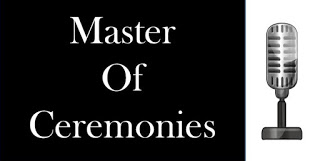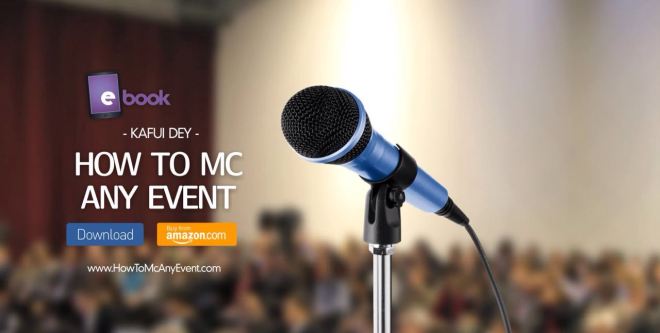
10 tips for being the Master of Ceremonies by Thom Singer
A friend and fellow speaker called me recently and asked my advice about being a Master of Ceremonies. She will be doing this for a major awards luncheon, and while she is an experienced presenter, she had not taken on this role in the past. As someone who cares deeply about serving her audiences, she did not want to “wing-it”, and thus was collecting best practices and ideas.
Being an Emcee (or is it MC?) is different from being a speaker. I have served as the MC for several events, and find that it involves a different set of skills from giving a speech, but at the same time a good Master of Ceremonies needs similar traits to a speaker. In many ways the MC role can be more difficult.
When I think of how an MC can make a difference in the success of an event I am reminded of the Academy Awards. Over my life I have seen a variety of celebrities host the Oscars, but nobody (in my opinion) holds a candle to Billy Crystal. Mr Crystal sets the tone for the event on the years they are wise enough to ask him to serve as the host. Other years we are left thinking “I wish Billy Crystal was the MC”.
My “Conference Catalyst” program is often morphed into an MC style role at multi-day events. This means that I am juggling educational / motivational material with the important tasks of introducing the speakers and keeping the whole schedule running on time. When you have to balance between both roles (speaker and MC), it can be a juggling act….and I mean juggling knives or fire. There is a lot to do as the MC, and a slip up can cause the vibe of the meeting to hit the floor.
If you are going to be the Master of Ceremonies for an event, here are ten tips that will help you contribute to the success and help give your audience a good experience:
1. Prepare for an opening. If you just come out and start the introductions there is no show. The Olympics do not just start with some folks running races or lifting weights. They have a choreographed opening ceremonies. You need the same thing. Crafting a pertinent story that draws in your audience before you get into the mundane (but necessary) tasks of thanking the sponsors and honoring guests is a great way to launch.
2. Remember that you are not the star of the show. When you deliver a speech, there is a part of the role that requires you to take center stage, but as MC it is not your time in the spotlight. You are there to keep things moving and to make sure the others on the program (or the award winners) are celebrated.
3. Your personality sets the tone for the event. While #2 holds true (you are not the star), you still set the pace. If you are buttoned up and serious, you can be sure the whole show will be stiff. If you are all over the map without purpose, …. there will be no focus. Find a happy medium, while putting out a high-energy vibe.
4. If you are not a professional comedian, do not tell jokes. A big mistake is made when people think a joke is the key to putting an audience at ease. Nothing is worse at an event than seeing an amateur bomb a canned punch line. Humor is important, but do not force it. Be yourself, and avoid the one liners!
5. When giving the microphone to others, make sure they have a time frame for their remarks. An award winner who rambles on and on will bury your momentum. If you cannot brief the other speakers in advance, work in some instructions about how much time they have. When appropriate do not walk far from the lectern. If you are standing close, they will keep their remarks brief. If you walk away they will talk forever.
6. Have transitions between speakers or award winners. A great way to transition is to give a short recap or compliment of what was said by the person before, and then set up the next presentation. Have stories prepared in advance about those you will be introducing (if possible) so that you have something to add each time you speak.
7. Be prepared. If someone does not show up, or if a waiter drops a tray… be prepared for how you will handle the confusion, etc… Live events often have things that can be a distraction. The key to being a good MC is to keep control of the meeting no matter what happens.
8. Shorten the script. If the meeting organizer gives you a script that is horrible, make changes. Your job as MC is to ensure the event is not boring. If the program flops you will be blamed for the poor reviews, not the person back at the home office who wrote the words. Thus you must be involved in creating a tight script that has a good tempo or be able to make changes as you are on stage.
9. Stay positive. Even if something goes wrong or someone is out of line, the MC must stay up-beat. If you get nasty about anything the audience will resent you for it.
10. Have a prepared close. Just like the opening ceremonies, you need to tie it together with a closing story or a call to action. Recap the highlights of the evening, and challenge the audience in some way (even if it is to come back next year!). If you have no closing ceremony then there is little to remember.
Have a great day.
Credit: thomsinger.blogspot.com
